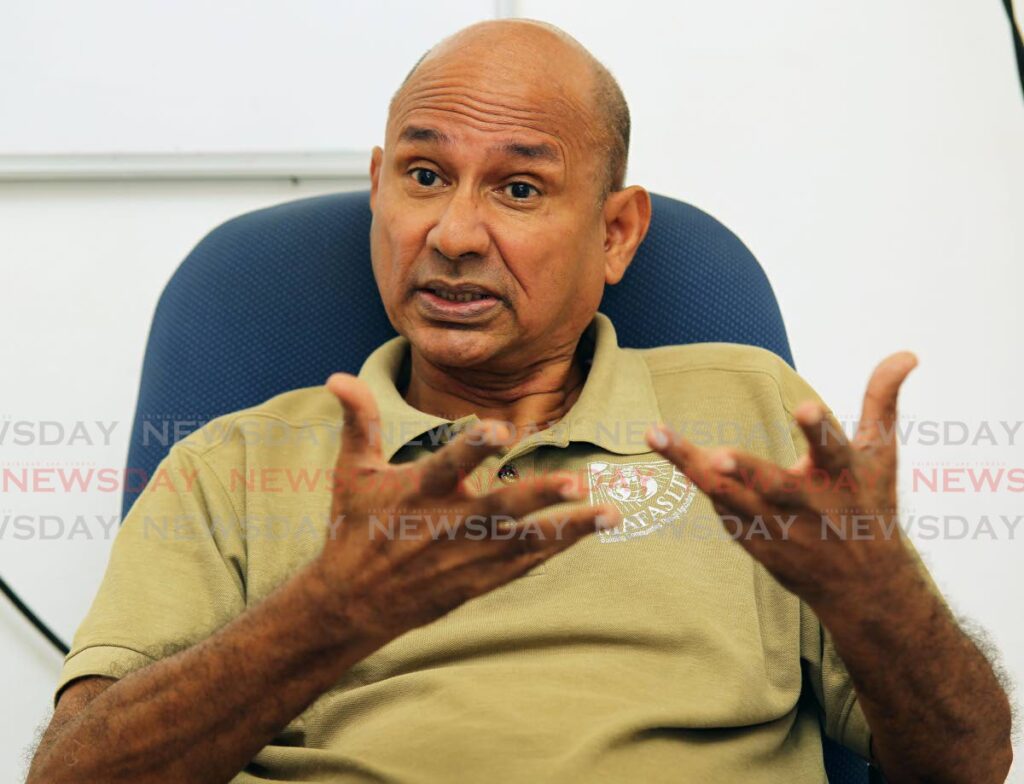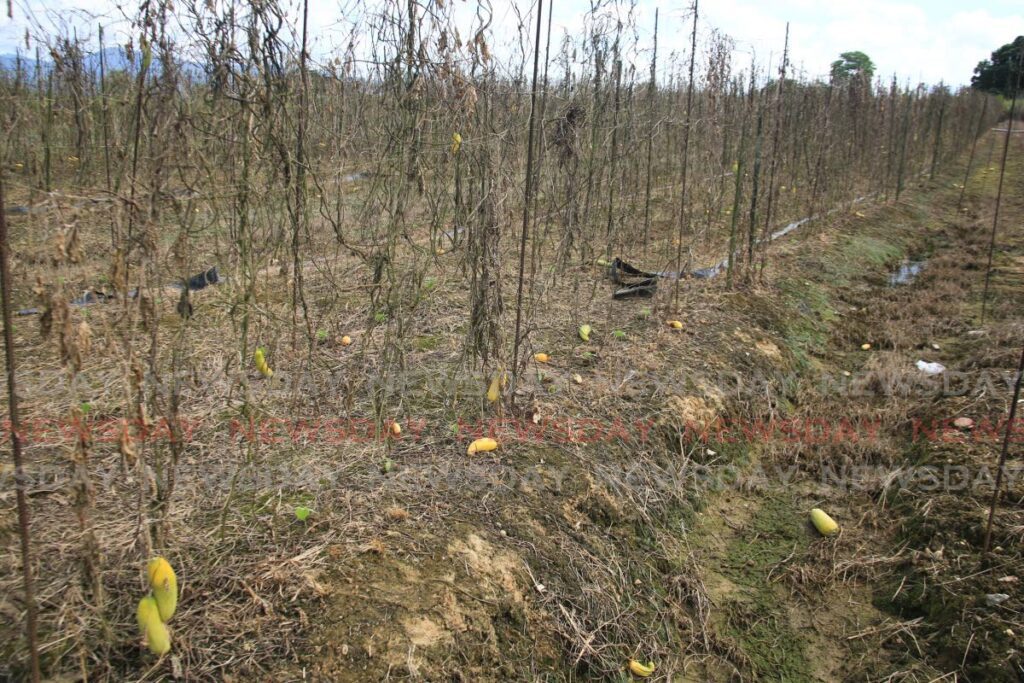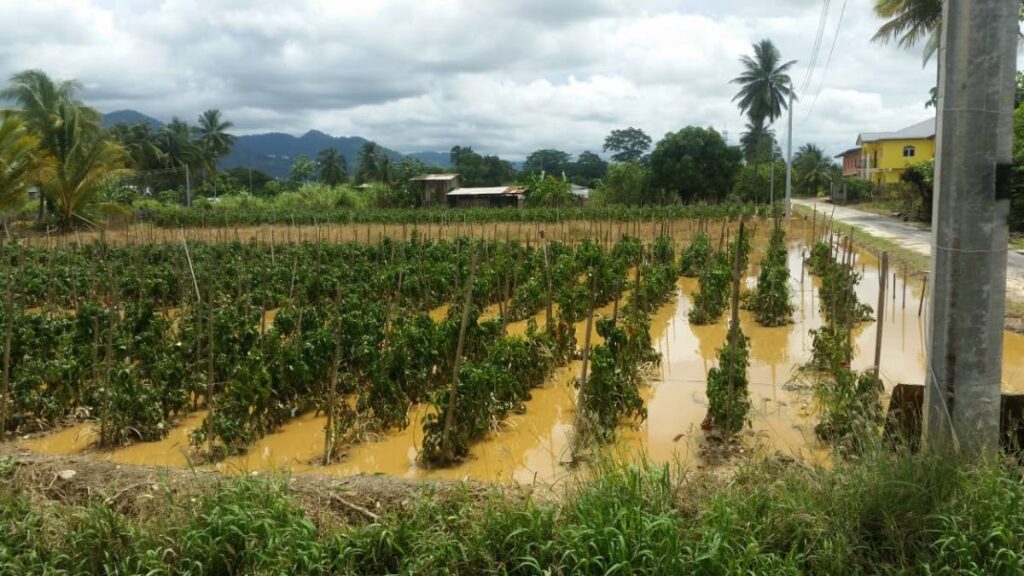Agriculture expert: Local farmers can thrive in spite of climate change

EVEN though drought, flood and heat hinder crop production, output in this country is “abysmally low,” and has been for decades, says agronomist Marcus Mycoo.
Mycoo, the founder and chairman of the MarVista Institute for Agricultural Training and Development (MIATD), has set out to reverse the trend by empowering farmers with skills training and support to boost productivity, and ultimately to help the country become less dependent on food imports.
The Freeport-based private institute was established in 2022 and began offering courses last year. It has hosted workshops and training sessions over the past several months on climate-smart agriculture, with sponsorship from Republic Bank’s Power to Make a Difference Programme.
On September 3, MIATD hosted its eighth workshop on climate change, supported by Republic Bank. It was held at the Tunapuna Community Centre, with support from the Tunapuna/Piarco Regional Corporation.
“People don’t truly understand what farmers do and the role they play. We say we need farmers but we are quick to blame (them) when prices rise.”
Mycoo believes there was a drastic shift in people’s attitude to “hard work” when the oil and gas industry boomed, causing many to leave the toils of farming.
He said the organisation wants to put the power back in the hands and pockets of farmers.
The industry can be rewarding for those who invest the time and learn the intricacies, he said.
At the workshop, farmers were taught that while adverse conditions, like drought and flooding affect plant health, techniques and products can be used to boost yield.

For example, tomatoes, he said, thrive on conditions around 32 degrees. And although temperatures mostly exceed that, there are ways of managing the plant to maximise yield.
The same applies to flooding, although techniques and soil management vary under those conditions.
The farmers were introduced to safe and environmentally-friendly agronomic strategies and applications to transform crop productivity, along with pest and disease management, seedling production and spray techniques to save on costs.
The purpose, organisers said, was to create linkages within the value chain in local agriculture.
Farmers were told that when conditions fluctuate, some crops get “confused” or “shocked.” But with some manipulation, the plants can persevere and provide large yields, if the right amount of nutrients are where they should be in the soil, in relation to the roots.
Mycoo discussed the science of nutrition, fertiliser and soil management – all crucial for high productivity.
Dozens of farmers with decades of experience spent $100 on the session and many, including the youngest and most senior farmers, said they left with invaluable experience.
Nineteen-year-old Nicholas Rampersad, of Mon Desir, South Oropouche, an enthusiastic and active participant, said the session was helpful, broadening his perspective on the level of control he has over his produce.
“It (can help) me to save so much money and to see new ways to apply different things,” he said.
“Most young farmers, like myself, are coming into agriculture with no knowledge…(I learnt a lot) talking to experienced (farmers) who have been on the same properties for over 40 years.”
He said he plans to attend more sessions and encourage other young farmers to do the same.
Rampersad said he is also exploring the financing options being offered by Republic Bank.
“Right now, I’m working a job and trying to build my farm, so if I can get that loan, it will help me out so much more, and (allow me) more time to put into the farm.”
One of the senior farmers, Terrence Haywood, with over 40 years of experience, said he found the session particularly topical, owing to the extreme conditions exacerbated by climate change.
“In this time, where we getting so much floods coming down, you getting pests and disease…this is important for us in this country. There (has been) a lack of training.”
He said the Ministry of Agriculture’s support of farmers has been lacking, and thanked MIATD for stepping up.

“This was a learning experience and farmers don’t ever finish learn.”
Haywood said he gathered key takeaways in just a few hours, even after working for 40-plus years on the farm.
Mycoo’s presentation was preceded by one from Prof Wayne Ganpat, UWI dean and senior lecturer in the Department of Agricultural Economics and Extension, who advised farmers to get used to the reality of climate change. He noted that, though per capita TT is a major greenhouse-gas emitter, the country and other small and micro-states are disproportionately affected by climate change and stand to lose the most.
Mycoo is a member of the MIATD board, which comprises Mycoo (chairman and lead consultant), Mycoo’s sister, researcher Prof Michelle Mycoo, Rayard Khan, and Nawaz Karim – all members.
MIATD offers training in hydroponics, fertiliser and soil management, land preparation, microbial technology (to regenerate soil), youth and women in agriculture, tree crop management, and many other topics.
It also offers specific training for growing hot peppers, watermelon, cocoa, pineapple, pawpaw, root crops, tomatoes, citrus and tree crops.
The next session on climate change for farmers will be held for farmers of Mayaro, Rio Claro, Manzanilla, Biche, Cushe, Plum Mitan, Guyaguyare and environs, at the Mayaro Resource Centre.
It will be the organisation’s eighth related seminar for the year. The previous ones were held in Sangre Grande, Penal, Point Fortin and other towns and rural communities across the country.

On September 9 and 10, the institute will travel with a training team for a workshop on pawpaw farming in Tobago, where the institute believes there is considerable room for growth.
It will start with a field trip, with Chief Secretary Farley Augustine carded to attend and deliver the feature address.
“Most of the pawpaw in Tobago comes from Trinidad,” Mycoo said. “In fact, most of the food in Tobago now comes from Trinidad. It was not always so.”
He said some Trinis may not like it but Tobago can satisfy its produce demand.
“The market for pawpaw is huge,” programme assistant Dianne Adiram told Business Day. “Everybody wants it. The hotels want a lot of it.”
Experienced farmers from Trinidad will lecture on pawpaw, a crop the MIATD believes has considerable room for growth.
Mycoo travels frequently across the region as a consultant, having visited Belize, Nicaragua and other Central American and Caribbean states to share his expertise on yield improvement.
He boasted that despite only being formed in 2023, the organisation has over 40 years of combined expertise on the board.
MIATD is an offshoot of Mycoo’s Agricultural and Field Advisory Services Ltd (Mafas), which he established in the 1990s.
Mafas started by offering consultation to providing the farming industry with inputs aimed at increasing yields and efficiencies.
“The technology and agronomy practices employed showed exponential results on various farms,” it said on its profile used to attract sponsors.

“However many gaps remain and new ones have been identified which impedes the agricultural sector from reaching its full potential.
“Having identified the gaps in the industry combined with high food insecurity throughout the region, Mycoo decided to refocus his attention to training and educating the primary producers of the sector to achieve higher yields…while bridging the gap that exists between the farmers, technicians, agro processors, finance and markets.
“The (MIATD) was born out of this vision and desire to build capacity and empower agricultural stakeholders and all peoples of the region.”
Mycoo told Business Day his organisation is committed to improving the agricultural landscape in TT.
He thanked Republic Bank’s Power to Make a Difference Programme, whose financial support was crucial in allowing affordable sessions for the farmers.
Mycoo said the organisation’s work is recognised by leading research institutions and revealed that a series of memoranda of understanding in on the table with UWI, the University of TT and the National Agricultural Marketing and Development Corporation. He said more details will be released soon.

Comments
"Agriculture expert: Local farmers can thrive in spite of climate change"